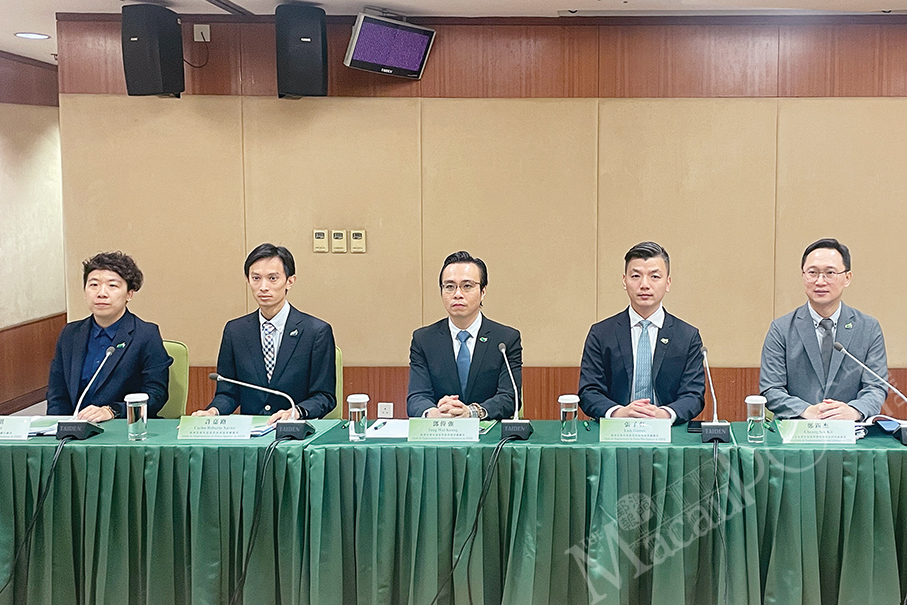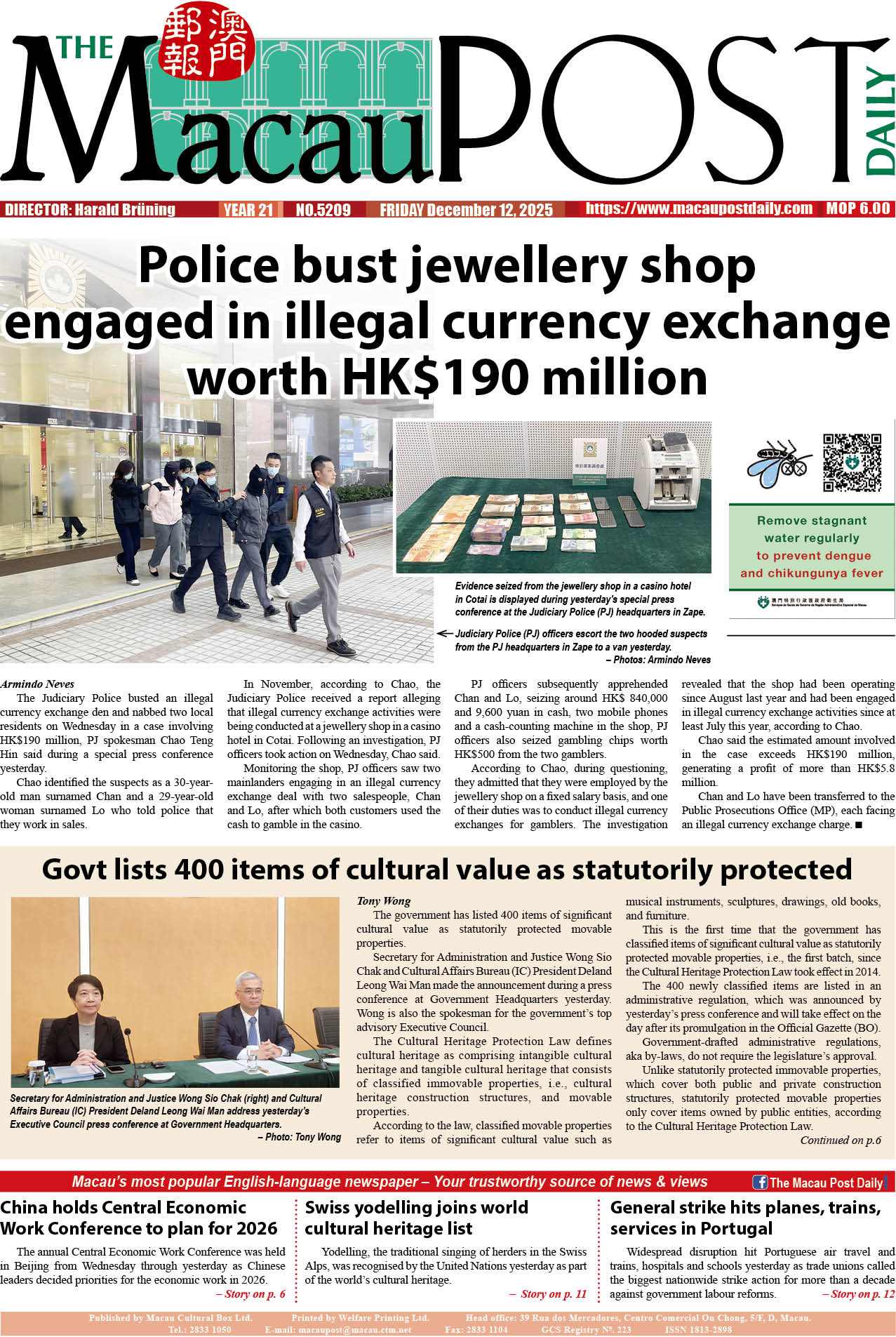The Education and Youth Development Bureau’s (DSEDJ) Curriculum Development and Assessment Department Chief Cheang Sek Kit said yesterday that in order to tie in with social development in line with the government’s “1+4” development strategy, fine-tuning of the government’s Formal Education Curriculum Framework is being carried out in areas such as Computer Programming education and Artificial Intelligence (AI) education.
The “1+4” strategy aims for appropriate economic diversification by promoting four main industries – big health, modern finance, high-tech, and conventions and exhibitions, including culture and sport.
According to Cheang, the bureau hopes that AI education can be integrated into the subject of information technology (IT), while also standardising the curriculum for the city’s schools to implement the teaching of AI or Computer Programming content for a quarter to a third of the class time.
Cheang also said that the bureau will continue to deepen students’ education on patriotism and the concept of loving Macau and the motherland, the national security law and the nation’s conditions by providing students with appropriate learning content.
Cheang added he expected the adjusted curriculum framework to be gradually implemented in the 2024/2025 school year.
Govt attaches great importance to students’ overall health: dept chief
Responding to an enquiry by a reporter about the bureau’s follow-up on a recent secondary-school stabbing, DSEDJ Non-Tertiary Education Department Chief Luís Gomes reaffirmed yesterday that all government entities have always attached great importance to students’ physical and mental health as a regular top priority, adding that the bureau is regularly holding working meetings and carrying out practical work concerning students’ overall health, such as sending on-campus counselling teams to support students facing different situations at schools, carrying out school-based interventions dealing with “deviant behaviour” among adolescents on campus and following up on specific cases.
Gomes underlined that during the annual meeting on guidelines for school operations, the bureau has stressed to schools the need to take good care of their students, such as providing emotional counselling to students in need during final examinations and when summer holidays are approaching and preparing their students for the changes in the upcoming academic year.
According to Gomes, the bureau’s working group on students’ physical and mental health has so far provided relevant training to over 2,000 teachers since its establishment last year.
Concerning the recent campus stabbing that occurred at Colégio Mateus Ricci on Travessa de São Paulo on Monday, in which a 16-year-old Form Four female student was admitted to the public Conde de São Januário Hospital Centre after being stabbed by her former male classmate, Gomes told reporters that the female student only sustained minor cuts and went home that night after receiving out-patient treatment and having calmed down, adding that the two students are now undergoing psychological counselling arranged by the bureau.
Gomes underlined that upon having been notified by the school, several senior officials of the bureau rushed to the campus and provided support to the school, while affirming that the school effectively followed the bureau’s campus risk management guidelines by launching a raft of measures including immediately evacuating the rest of the students and finding suitable teachers to calm down the male student who was emotionally distressed.
In addition, the school and the bureau held an emergency meeting in response to the incident to provide immediate psychological counselling for the students in the affected class that day, Gomes said, adding that the school had also promptly issued a notice to explain the incident to its students and parents.
DSEDJ to launch Portuguese-language training courses
Meanwhile, according to Gomes, with the intention of enabling local students to focus more on the study of their specific academic subjects without having to concentrate on their Portuguese-language courses when studying in Portuguese-speaking countries, the bureau will launch a four-year continuous and diversified “Portuguese Language Training Programme” for local Chinese- and English-language schools in the upcoming academic year, targeting secondary-school students who intend to study in Portuguese-speaking countries or pursue courses related to the Portuguese language, with a maximum enrolment of 180 students.
Both Cheang and Gomes made the remarks during a press conference at the bureau after the government-appointed Education Committee’s first-plenary closed-door meeting this year.

The Education and Youth Development Bureau’s (DSEDJ) Non-Tertiary Education Department Chief Luís Gomes (second from right), Curriculum Development and Assessment Department Chief Cheang Sek Kit (right), Student Department Acting Chief Lei Im Kei (left), Educational Resources Department Chief Tang Wai Keong (centre) and Higher Education Department Chief Carlos Roberto Xavier pose during yesterday’s press conference after the government-appointed Education Committe’s first-plenary closed-door meeting this year, at the bureau. – Photo: Yuki Lei







